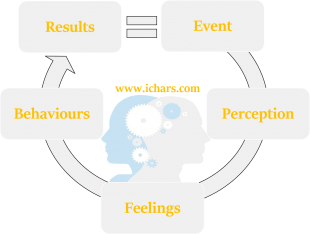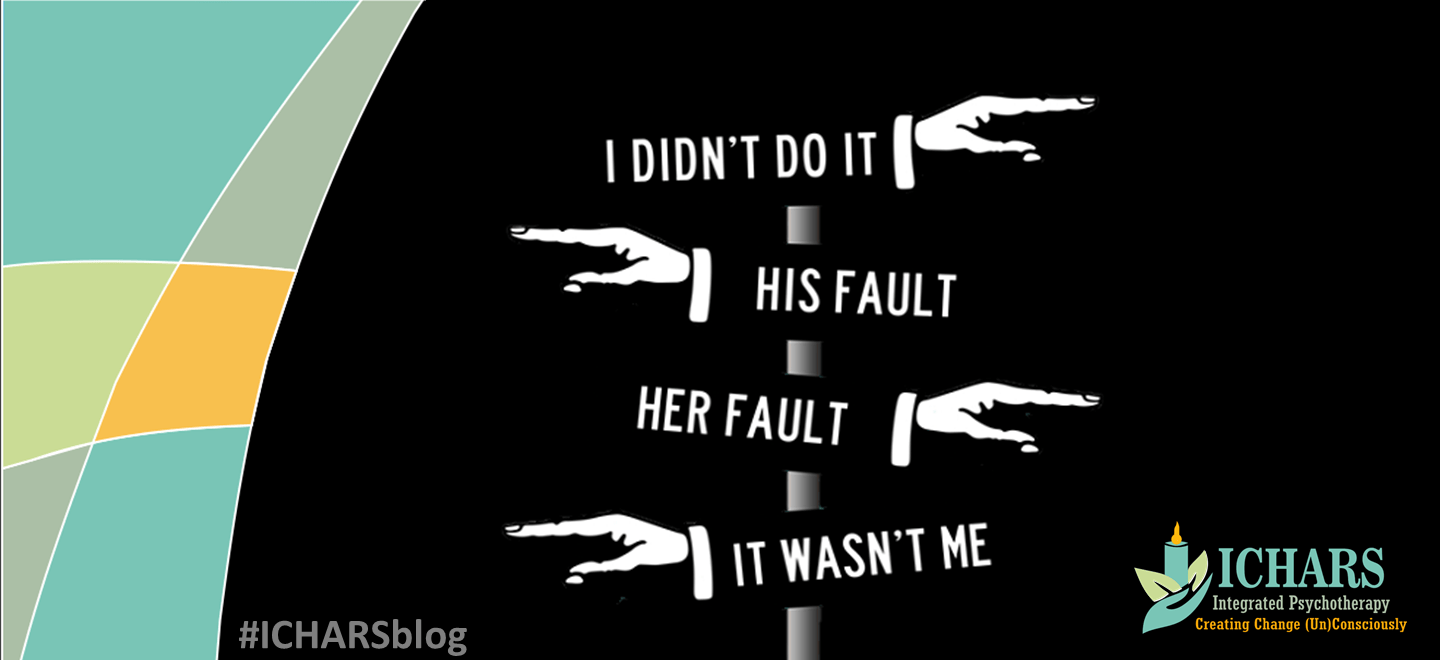Introduction
There is a very interesting and powerful NLP Presupposition on being responsible:
“We are all responsible for our own experiences”
Before we understand what that means and why is this presupposition important, let me tell you a bit about Shirin.
Shirin is a middle aged working woman, a mother of two and manages household responsibilities. She often gets frustrated with the juggling involved in all these roles, which makes her feel helpless – as if she has no control over her life.
She finds herself either running behind children fulfilling their demands, doing endless household chores or completing her work assignments before deadlines.
Shirin tells her counsellor, “I find no personal time… sometimes I feel I am a slave …or a robot.. working 24×7…! I am not happy.. But what can I do…. This my life, I have to suffer and deal with all of this.
Have you ever faced such dilemmas or like Shirin, do you feel like a slave or a robot working 24 × 7?
OR
Maybe you have come across a person who would blame others for his/her own misfortunes. It could be friends, parents, circumstances, luck, uncertainty, karma, God…. everyone EXCEPT THEMSELVES.
- But is it true? Do we really not have any control over our experiences?
- Do we really have no responsibility for the mess that we, at times, find ourselves in?
To answer these questions, let us begin by defining the word “Experience”.
Defining Experience
Experience can be defined as a combination of three elements:
- What we do
- What happens to us
- How we feel as a result of what happens to us
Of the three elements, it would be fair to say that in the short run, though we have little control over what happens to us or how people respond to us, we can have complete control over what we do (provided we have the skills to support what needs to be done) and how we feel as a result of what happens to us (provided we know how to manage our emotional state).
Even if we lack the skills or don’t know how to manage our emotional state, we can always work towards developing the required skills and learn to manage emotional states. If we don’t know how then visit a life coach or attending a Hypnosis, NLP or other personal development courses can be extremely useful.
Once you continue exercising this control over what we do and how we feel in the short run, you may find yourself getting pleasantly surprised, in the long run, about the amount of influence you have over what happens to you and how people respond to you.

Wondering how?
Look at it this way…. there is an event that takes place in my life. The way I interpret the event influences the way I feel about it. My feelings influence my behaviour. Consistent behaviour influences what happens in my life. This is called self-fulfilling prophecy.
Self-fulfilling Prophecy
Let’s say, I was fired from my job.
Whatever was the reason for my getting fired, I can perceive it as a failure or a witch hunt on part of my boss (sorry ex-boss).

I will feel bad emotionally maybe frustration, helplessness… I may try to apply for jobs and go for interviews but the feeling of helplessness and that I am a failure may continue to play on my mind which could make me nervous.
This nervousness along with probable absence of certain skills will influence my performance during these interviews. If I don’t get a job soon enough, the belief that I am a failure becomes stronger and I may even stop going for interviews.
This would lead to an outcome of me not having a job, feeling further helpless and I would probably be blaming my ex-boss or company policy or current job scenario or government…
This sense of helplessness can influence other areas of my life including my relationships.
But what if I perceived this event of getting fired as a feedback.
Remember the presupposition “there is no failure only feedback“?.
I may feel bad about losing the job but would look at what I could have done differently.
Were there certain skills that I could have lacked or was there something about my attitude towards my boss, colleagues or clients that could have led to my being fired.
The skills may be technical one’s related to my job profile or could be related to interpersonal skills like communication or the ability to handle stress or pressure coming from my stress. It could simply be my man management and conflict resolution skills which may not be directly related my job but could have influenced my interactions.
Once I identify these skills or learn to manage my emotion and attitude, I may experience renewed hope. The confidence with which I go for the interview combined with the new skills will enhance my chances of getting not just a job but in all probabilities a better one compared to the one I was fired from.
On top of this my “ability to focus on what now” instead of “why me” ensures that impact of my initial job loss on other areas of my life is minimal that too just in the short run.
As you look at the sequence of events in the above two examples, you will realise how we have a lot more control over what happens to us in our life then what most of us even imagine.
Once you put it in right perspective, it is quite simple to grasp really. Isn’t it?
Different People Different Experiences
Now I agree that the all of us may not face similar degree of challenges. Challenges for some people can be greater than the challenge faced by me in the above example. That only means I may need more time and more efforts to influence what happens in my life.
Whether I choose to feel about these additional efforts or see them as an interesting challenge like a higher level in a game that I enjoy playing, is my choice and the ability to apply this choice more naturally is my skill.
If you think of it, having a greater influence over what we experience is all about having (or developing) certain skills and managing our emotional state to apply (or develop) these skills effectively.
You may not always be able to control every event that takes place in your life or specific response of every individual that you interact or not interact with, but the overall experience of life is something that you can still have a lot of control over. This will all start with your willingness to take responsibility for your experiences and then taking the required steps based on the same.
Summary
Now with what you have read and understood, it is quite clear that we have some control over experiences in the short run and a lot of control in the long run. So, wouldn’t it be correct to say that at in the long run we are responsible for our experiences to a large extent.
This by the way is also one of NLP presuppositions. Learning about these presuppositions and applying them in your life could be one of the easiest things to help you live a happier, healthier and fulfilling lives.
Therapists Niche
So I completely agree with the idea that we are all responsible for what happens in our life. That said it is not something that you tell your client. The client needs to come to this realisation naturally as a result of the transformation they have experienced as a result of the therapy.
Some time back, I had met a colleague who mentioned that “in the first session with my clients I ensure they take completely responsibility for the mess they have created”.
Over the course of therapy the client should be able to understand his / her responsibility. First session is not the place or the time to insist upon it.
So please be careful about what you tell the client, how you say it and when you say it. Remember not only the client but even you are completely responsible for what happens in your life.
Though the ability “to understand what you should and shouldn’t say and when you should say” is extremely important for everyone but for a coach, a therapist or a trainer this ability a really a must. You can make or break clients or participants life with you words.
These skills along with others that can help you become an effective, responsible and successful Coach are practised in our Cognitive Hypnotic Coaching™ Course which is based on the integration of Hypnosis, Neuro Linguistic Programming and Life Coaching.
If you are a psychologists who would like to develop advanced therapeutic skills to help clients not just help them resolve their current problems but also develop greater sense of responsibility, you should instead enroll for the Cognitive Hypnotic Psychotherapy™ Program

